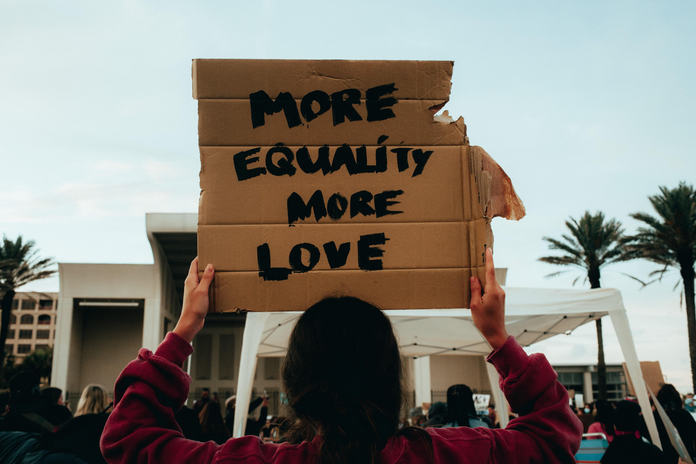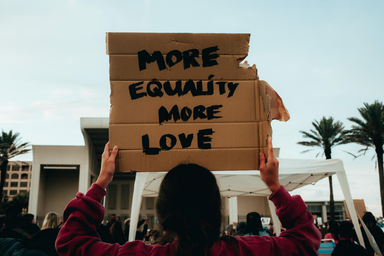From the Editor’s Desk
The line-up for this week is centered on the theme of Liberation. The dynamism of the theme lies in the wide-ranging interpretations of the same and its relevance is embedded in the inexplicable quest of human beings to find a meaning in their lives. To a great extent, liberation is the answer to existentialism. Apart from being exceedingly subjective, it diverges on the basis of other macro scale factors.
Unlike what a Western understanding will advance about Liberation, it is far more than resolution of some abstract psychological troubles or a feeling of ‘freeness’ experienced by an individual. Social emancipation is an intrinsic element of Liberation. Shackling of class structures, for instance, can prove to be equally liberating for people trapped in the lower ends of the class hierarchy.
There is a tendency to employ analytical concepts like that of liberation in a way that favours the interests of established social norms. While dealing with such concepts, one must be cautious to not think in a way in which the establishment wants us to think.”Liberation for whom?” must be a fundamental question we need to address.
This week’s line-up consists of four diverse articles, written by writers who approach the question of liberation in their own peculiar ways. Can practices like journaling and writing ensure liberation from trauma? How does the concept of liberation apply to the practice of substance abuse and does society play a dual and hypocritical role when it comes to substance addiction? Let’s give the idea some specificity- Is the theme of sexual liberation, persistent in pop music, doing any good to break gender norms? Or, how the narratives about queer representation in movies and shows have changed in recent times ? This week’s line-up attempts to answer these questions while trying to generate a dialogue on some lesser explored themes of liberation.
Another close concept attached to liberation is that of love. A lot of people located and continue to locate liberation in the process of loving. Self-love and an improved relationship with oneself is definitely an inseparable part of love but the idea I aim to unravel by the means of this piece concerns itself with romantic love or, in the historical context, love with the divine. The first instance of emancipating yourself by loving the other, at least in the Indian timeline, comes from the Bhakti-Sufi tradition. Amir Khusrau wrote in the thirteenth century-
Do nain tere, do nain mere
Mile toh milke chaar huye
Ye apni apni qismat hai
Do jeet gaye, do haar gaye
The dominant idea of this couplet is that of fanaa, which means destruction of one’s identity and blending it with that of the divine. It is this destruction that will result in liberation. While analysing the situation from a modern perspective, it might seem to be a little unclear but a gendered analysis of the same gives us a better understanding. Strictly regulated lives and sexuality of women during the Vedic age paved the way for a desire in women to express themselves and transcend the structures of male control. Bhakti-Sufi traditions allowed them to exercise their ‘avid will to be’ (as Simone De Beauvoir puts it). They composed the most unorthodox poems for their divine, sang and danced hysterically on them. Ironically, various women like Meerabai left their households and their supposed ‘love ’(husbands) just to devote themselves completely in the love of their divine. This respite from social norms provided them with liberation.
Back to our times, though the material and social conditions have drastically changed for women, love continues to be the base emotion of the lives of many women. Celine from Richard Linklater’s Before Sunrise, in an emotionally intimate conversation, says to Jesse-
“I always feel this pressure of being a strong and independent icon of womanhood, and without making it look my whole life is revolving around some guy. But loving someone, and being loved means so much to me”
This is a persistent story of many women. Simone De Beauvoir considers it as a form of servitude, a manifestation of male control. She believes that since women have been denied the basic opportunities to exercise absolute control over their lives, they try to give meaning to their lives via the men who they love. In this way, their lover becomes the locus of their life. However, whether such tendencies of ‘love’ are liberating or throttling is where all concrete explanations encounter a failure.
To love is also to experience a social encounter. When two individuals interact romantically, they attempt to understand each other beyond several fundamental characteristics or features that social expectations train them to analyse in a person. For instance, communication and articulation have been considered as a major social parameter to ‘judge’ a person but emotions are not subjected to such defined categories. What if a person falls in love with a being who is not very articulate and ‘socially unfit’? In such a case, when the love of a person is surpassing social expectations, it becomes liberating. There are bound to be problems of social validation in such kinds of love but it perhaps results in the most genuine consonance between one’s thoughts and actions, and thus represents the truest nature of oneself.
When love cuts across concrete socio-economic categories, it liberates masses and proves to be socially progressive. Such is the case with inter-class, inter-caste or inter-faith marriages. Similar demonstrations of love are becoming more evident by the virtue of an urban culture and ushering of a city life, wherein individuals from wide-ranging backgrounds migrate to cities for various reasons including education and better prospects. However, in a milieu that is dominated by socially strong groups and culturally led by their norms, the scope of this type of ‘liberating’ love remains to be skeptical. Dating apps specify the traits, likes and dislikes of a person, potential matches go through them, they ‘click’, explore their mutual way ahead,social validation is showered on them and, of course, vested corporate interests prosper. Human emotions seem to lose the essence of rawness they once strongly represented.
It appears that we love in a way some established norms want us to love and in this seemingly gloomy setting, unconventional forms of love are certainly liberating.


